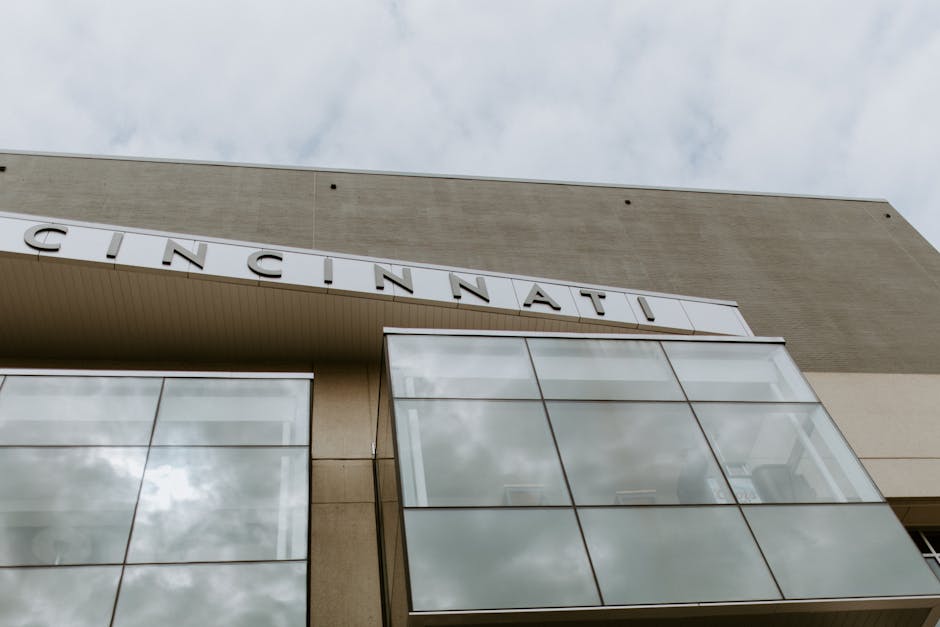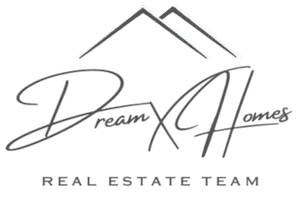Tired of Feeling Lost in the Home Loan Maze?
Get 5 Insider Secrets from NAR(National Association of Realtors) that Make Navigating Your Loan Simple and Stress-Free!
I consent to receive calls and texts from DreamX Homes & Glasshouse Realty Group for real estate information and assistance. You can unsubscribe anytime.
The Complete Guide to Understanding Mortgage Insurance Costs

The Complete Guide to Understanding Mortgage Insurance Costs

When venturing into home ownership, understanding how much is mortgage insurance often tops the list of potential homeowners' concerns. Mortgage insurance costs can vary significantly, but typically, private mortgage insurance (PMI) for a conventional loan is about 0.2% to 2% of the total loan amount annually. FHA loans, on the other hand, have mandatory upfront and annual mortgage insurance premiums (MIP) designed to protect lenders.
Overview of Mortgage Insurance Costs:
- Conventional Loans:
- PMI costs range from 0.2% to 2% annually.
- Required if down payment is less than 20%.
- FHA Loans:
- Upfront charge of 1.75% of the loan amount.
- Annual MIP varies based on loan value and length.
- USDA Loans:
- Require "guarantee fees" similar to other loan types.
Mortgage insurance serves as a safety net—not for you, but for your lender. It ensures they recover their money if you can't keep up with your payments. This coverage lets aspiring homeowners enter the market with down payments as low as 3.5% for FHA loans or less than 20% for conventional loans. While it helps in securing a loan, be aware—it doesn't protect you, the borrower, from financial setbacks.

What is Mortgage Insurance?
Mortgage insurance is a safeguard for lenders. It protects them if you, the borrower, can't make your mortgage payments. While it doesn't cover you directly, it allows you to access home loans with lower down payments.
Lender Protection
Lenders face a risk whenever they give out a mortgage. If a borrower defaults, the lender could lose a lot of money. That's where mortgage insurance steps in. It acts as a buffer, ensuring lenders get their money back if something goes wrong.
For example, if you buy a house with a 5% down payment and then can't pay your mortgage, the lender is at risk. Mortgage insurance covers the lender for the remaining 15% of the loan-to-value ratio that wasn't covered by your down payment.
Borrower Requirements
Borrowers are often required to buy mortgage insurance if they make a down payment of less than 20%. This rule applies mainly to conventional loans. For FHA loans, mortgage insurance is always required, regardless of the down payment amount.
Here's how it works:
- Conventional Loans: If you put down less than 20%, you’ll likely need to pay for private mortgage insurance (PMI). This is usually added to your monthly mortgage payment.
- FHA Loans: These loans come with a mortgage insurance premium (MIP) that includes an upfront fee and an annual fee. The upfront fee is typically 1.75% of the loan amount.
- USDA and VA Loans: These loans have different insurance structures. USDA loans require guarantee fees, while VA loans have a funding fee instead of traditional mortgage insurance.
Mortgage insurance makes it possible for people to buy homes with smaller down payments. However, it’s important to remember that this insurance is for the lender's benefit, not yours.

Understanding the basics of mortgage insurance is crucial when planning to buy a home. It helps you know what to expect and how it impacts your monthly payments. Next, we'll dive into the costs associated with mortgage insurance and what factors influence these costs.
How Much is Mortgage Insurance?
When you're considering buying a home, one of the questions you'll likely ask is, "how much is mortgage insurance?" The cost can vary widely based on several factors, including the type of loan you choose and your financial profile. Let's break it down into two main types: Private Mortgage Insurance (PMI) and FHA Mortgage Insurance Premium (MIP).
Private Mortgage Insurance (PMI) Costs
PMI is generally required for conventional loans when your down payment is less than 20%. The cost of PMI typically ranges from 0.5% to 1.5% of the loan amount annually. However, it can go as high as 6% depending on various factors.
Factors Affecting PMI Costs:
-
Loan-to-Value (LTV) Ratio: The higher your LTV ratio, the more you'll pay for PMI. For example, a 95% LTV ratio will have higher PMI costs compared to an 80% LTV ratio.
-
Credit Score: Your credit score significantly influences your PMI rate. A higher credit score means lower PMI costs. For instance, a borrower with a credit score of 760 might pay much less than someone with a score of 620 for the same loan.
- Loan Type: Fixed-rate loans often have lower PMI costs compared to adjustable-rate mortgages (ARMs) due to the latter's higher risk.
FHA Mortgage Insurance Premium (MIP) Costs
FHA loans have their own unique mortgage insurance structure, known as the Mortgage Insurance Premium (MIP). This includes both an upfront premium and an annual premium.
- Upfront Premium: This is a one-time fee of 1.75% of the loan amount. It's typically paid at closing but can be rolled into the loan.
- Annual Premium: This varies based on the loan term and LTV ratio. For loans longer than 15 years, the annual premium ranges from 0.80% to 0.85%. For loans 15 years or shorter, it ranges from 0.45% to 0.70%.
Here's a quick comparison:
| Loan Term | LTV Ratio | Annual Premium |
|---|---|---|
| > 15 years | Up to 95% | 0.80% |
| > 15 years | Above 95% | 0.85% |
| ≤ 15 years | Up to 90% | 0.45% |
| ≤ 15 years | Above 90% | 0.70% |
Key Point: Unlike PMI, the MIP on FHA loans usually lasts for the life of the loan unless you refinance or make a significant down payment initially.
Understanding these costs and how they apply to your situation is essential. It helps you plan your home buying budget and make informed decisions. Next, we'll explore the different types of mortgage insurance and their specific features.
Types of Mortgage Insurance
When you're navigating the home buying journey, understanding the different types of mortgage insurance is crucial. These insurance types protect lenders from potential losses if a borrower defaults on their loan. Let's explore the main types: Private Mortgage Insurance (PMI), Mortgage Insurance Premium (MIP), USDA Guarantee Fees, and VA Funding Fees.
Private Mortgage Insurance (PMI)
PMI is typically required for conventional loans when a borrower makes a down payment of less than 20%. Think of it as a safety net for lenders, allowing them to offer loans to more people.
- How it Works: PMI can be paid monthly, in a single upfront payment, or as a combination of both. Borrowers usually pay PMI until they reach 20% equity in their home.
- Cost Factors: The cost of PMI varies based on the loan-to-value (LTV) ratio, credit score, and loan amount. A higher LTV or lower credit score generally means higher PMI costs.
- Cancellation: Once your mortgage balance reaches 78% of the home's original value, PMI is automatically canceled. You can also request cancellation when you've paid down your mortgage to 80% of the home's value.
Mortgage Insurance Premium (MIP)
MIP is specific to FHA loans, a popular choice for first-time homebuyers with lower credit scores or smaller down payments.
- Structure: MIP includes an upfront premium of 1.75% of the loan amount, plus an annual premium that varies based on the loan term and LTV ratio.
- Lifetime Requirement: For FHA loans with a down payment of less than 10%, MIP typically lasts for the life of the loan. However, if you put down at least 10%, MIP can be canceled after 11 years.
- Why Choose FHA: Despite the ongoing MIP costs, FHA loans are attractive because they have more lenient credit requirements and allow for lower down payments.
USDA Guarantee Fees
For those buying homes in eligible rural areas, the USDA loan offers a no-down-payment option. Instead of traditional mortgage insurance, these loans have guarantee fees.
- Fee Structure: USDA loans require an upfront guarantee fee of 1% of the loan amount and an annual fee of 0.35%. These fees serve a similar purpose to PMI and MIP, protecting lenders from risk.
- Flexibility: The upfront fee can be rolled into the loan, reducing the immediate cash needed at closing.
VA Funding Fees
VA loans are designed for veterans and active-duty military personnel. They don't require mortgage insurance but do have a one-time funding fee.
- Funding Fee: This fee varies based on the type of service, down payment amount, and whether it's the borrower's first VA loan. It ranges from 0.5% to 3.3% of the loan amount.
- Benefits: VA loans offer significant benefits, including no down payment and no ongoing mortgage insurance premiums, making them an attractive option for eligible service members.
Understanding these different types of mortgage insurance helps you choose the best loan option for your financial situation. Next, we'll explore strategies to avoid or cancel mortgage insurance, potentially saving you money in the long run.
How to Avoid or Cancel Mortgage Insurance
Navigating mortgage insurance can be tricky, but there are ways to avoid or cancel it, saving you money over time. Let's explore some strategies: 20% down payment, lender-paid insurance, and refinancing.
20% Down Payment
One of the most straightforward ways to avoid mortgage insurance is by making a 20% down payment on your home purchase. This approach eliminates the need for PMI, as lenders typically require it only when your down payment is less than 20%.
- Why 20% Matters: By reaching this threshold, you reduce the lender's risk, which means they won't require the extra insurance.
- Challenges: Saving up for a 20% down payment can be challenging, especially with rising home prices. However, it can significantly lower your monthly payments and overall loan costs.
Lender-Paid Insurance
Some lenders offer a lender-paid mortgage insurance (LPMI) option. With LPMI, the lender covers the insurance cost, but you might pay a higher interest rate.
- Trade-offs: While you avoid monthly PMI payments, the increased interest rate could result in higher overall costs over the life of the loan.
- Considerations: It's essential to calculate the long-term financial impact. LPMI might be beneficial if you plan to stay in your home for a shorter period.
Refinancing
Refinancing your mortgage is another way to eliminate mortgage insurance. This method involves replacing your current loan with a new one, ideally with better terms.
- When to Refinance: If your home has appreciated in value or you've paid down a significant portion of your loan, refinancing could help you reach the 20% equity mark, allowing you to drop PMI.
- Costs and Benefits: Refinancing comes with closing costs, but the potential savings from eliminating PMI and securing a lower interest rate can be worth it.
- Timing: Keep an eye on interest rates and your home's market value to determine the optimal time to refinance.
By understanding these strategies, you can make informed decisions to potentially avoid or cancel mortgage insurance, keeping more money in your pocket. Up next, we'll tackle some frequently asked questions about mortgage insurance to further clarify this complex topic.
Frequently Asked Questions about Mortgage Insurance
What is the typical cost of mortgage insurance?
Mortgage insurance costs can vary, but generally fall between 0.2% to 2% of your loan amount annually. This range depends on several factors, such as your loan-to-value (LTV) ratio and credit score.
For example, a $300,000 mortgage might have an annual mortgage insurance cost ranging from $600 to $6,000.
- PMI: For conventional loans with less than a 20% down payment, borrowers typically pay private mortgage insurance (PMI). This is usually part of your monthly mortgage payment.
- MIP: For FHA loans, the mortgage insurance premium (MIP) includes both an upfront fee (1.75% of the loan amount) and an annual premium (0.15% to 0.75%).
How can I cancel PMI?
Canceling PMI can lead to significant savings. Here’s how you can do it:
- Reach 20% Equity: Once you've paid down your mortgage to 20% equity, you can request PMI cancellation. This is a common practice and can be a great way to reduce your monthly payments.
- Appraisal: If your home's value has increased, you might be able to have it reappraised. A higher home value can help you reach the 20% equity threshold faster.
- Lender Request: You can ask your lender to cancel PMI once you achieve 20% equity. Be prepared to provide proof, such as an appraisal or mortgage statement.
- Automatic Cancellation: Lenders are required to automatically cancel PMI when your loan balance reaches 78% of the original home value.
Is mortgage insurance tax-deductible?
Mortgage insurance premiums were once tax-deductible, but recent changes have affected this benefit.
- Tax Implications: The tax deduction for mortgage insurance premiums expired with the Further Consolidated Appropriations Act of 2020. This means you can no longer deduct these premiums from your taxes as of now.
- Stay Informed: Tax laws can change, so it's crucial to stay updated on any new legislation that might reinstate this deduction. Consulting with a tax professional can also provide clarity for your specific situation.
Understanding these aspects of mortgage insurance can help you make more informed financial decisions. Next, we'll dig into other types of mortgage insurance, including USDA fees and VA funding fees.
Conclusion
Navigating mortgage insurance can be a bit overwhelming, but with the right guidance, it doesn't have to be. At DreamX.Homes, we're committed to making your home-buying journey as smooth and informed as possible.
Personalized Guidance
Our team understands that every homebuyer is unique, with specific needs and financial situations. That's why we offer personalized guidance custom to your circumstances. Whether you're a first-time buyer or looking to refinance, we're here to help you understand your options, including how much mortgage insurance might cost you and how to potentially reduce those costs.
Home Buying Tips
Here are some practical tips to keep in mind:
-
Check Your Credit Score: A higher credit score can lower your mortgage insurance costs. Make sure to review your credit report and address any inaccuracies before applying for a mortgage.
-
Consider a Larger Down Payment: If possible, aim for a 20% down payment to avoid PMI altogether. If that's not feasible, even a slightly larger down payment can reduce your insurance costs.
- Explore Different Loan Options: Different types of loans come with varying mortgage insurance requirements. Our team can help you explore options like FHA, VA, and USDA loans to find the best fit for your situation.
- Stay Informed: Mortgage insurance rates and regulations can change. Keep yourself updated and consult with our experts to make the best financial decisions.
By leveraging AI for home valuation and ensuring transparent transactions, we strive to empower our clients with the knowledge and tools needed to make confident decisions. Our expertise in the Cincinnati, Ohio market allows us to provide insights that are both relevant and actionable.
Ready to take the next step in your home-buying journey? Visit our mortgage calculator to get started with personalized estimates and further insights into your potential mortgage costs.
At DreamX.Homes, we're more than just a real estate service; we're your partners in making your dream home a reality.
Categories
- All Blogs 92
- Boosting Home Value 3
- Buyer Resources 13
- Eco-Friendly Upgrades 1
- First-Time Buyer Tips 2
- Home Buying & Selling 3
- Home Improvement & Staging 5
- Investment & Financing 14
- Local Attractions & Schools 5
- Local Market Trends 8
- Local Policy Changes 2
- Market & Industry News 2
- Market Insights 6
- Mistakes to Avoid 1
- Mortgage & Financing 22
- Neighborhood Spotlights 12
- Neighborhoods & Lifestyle 18
- New Construction 10
- Real Estate News & Updates 4
- Real Estate Technology 2
- Seller Resources 4
- Staging Tips 2
- Sustainability 3
Recent Posts










Tired of Feeling Lost in the Home Loan Maze?
Get 5 Insider Secrets from NAR(National Association of Realtors) that Make Navigating Your Loan Simple and Stress-Free!
I consent to receive calls and texts from DreamX Homes & Glasshouse Realty Group for real estate information and assistance. You can unsubscribe anytime.

"My job is to find and attract mastery-based agents to the office, protect the culture, and make sure everyone is happy! "

